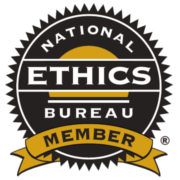DON’T OUTLIVE YOUR INCOME
With the added complexity found across today’s financial topography, there seems to be more questions than ever before for investors and retirees alike when it comes to determining how long their savings will last them.
Whether it’s the rising cost of healthcare, uncertainty in the stock market or skyrocketing consumer and credit card debt, being able to comfortably retire in today’s financial landscape may seem more like a chess match than a relaxing game of checkers.
If each of us knew the exact day in which we would take our last breath, retirement planning would be a breeze. Other than the extreme morbidity of knowing your ultimate expiration date, you’d have the ability to walk your budget backwards, carefully earmarking funds for all the important things you’ll need money for along the way: vacations, home expenses, groceries, bills and ultimately, your end-of-life expenses.
If this were the case, you’d know exactly how much money you’re left to play with after all of the “must-do” items were checked off the list. None of us have this luxury though, so we’re left to navigate these ever-murky retirement waters. However, the days after you’re finished working should be sunny and optimistic – you’ve simply got some planning to do. Only in recent decades has the accountability for retirement savings shifted – almost completely – from employer to the employee, as pensions have largely gone the way of the dinosaur. With the wealth of information available to us today, the duty now falls squarely on you, the retiree. Below are three areas where you will be best served focusing your efforts to ensure that you don’t outlive your savings in retirement.
MAKING A REALISTIC BUDGET AND WITHDRAWAL STRATEGY
First, start with your essential expenses such as food, housing, utilities, clothing, baseline healthcare cost and any monthly payments like auto and homeowners insurance. These should be the expenses that you tie to your most reliable sources of income. What you’ll find now is that once you separate your costs between “wants” and “needs,” is that there is also a lot of “want” within your “need” category. Take some extra time to further analyze this list and decide if you can scale back any of these “highly-desired needs.” Once you’ve met your essential costs, now turn your attention to your discretionary spending – things like vacations, entertainment or one-time travel costs. One of the biggest mistakes that you can make in creating your budget is not including something as “essential” when you should’ve included it within the “discretionary” list, which serves only to add confusion to your budgeting practice.
BOOST YOUR RETIREMENT CASH FLOWS
Even once you’ve called it quits with your career work, there are still so many ways retirees can stay busy while producing extra revenue streams to stretch out their savings, in addition to finding something to fill the hours of their new, wide-open schedule. The real retirement winners are those retirees that are able to combine a hobby with a part-time job. For instance, someone who loves gardening being able to work outside as a groundskeeper after years in front of computer screens as an accountant. Oftentimes, part-time employment allows you to maintain some level of employee-sponsored benefits, which could hold the potential of saving you money on healthcare.
If you have questions about preparing for retirement, call Nevada Senior Advisors at 775-674-2223.

